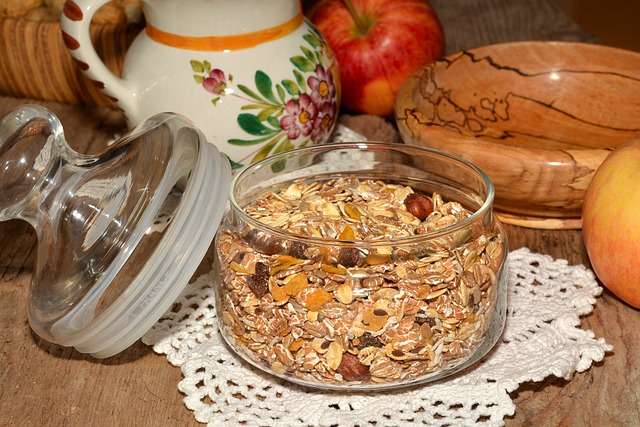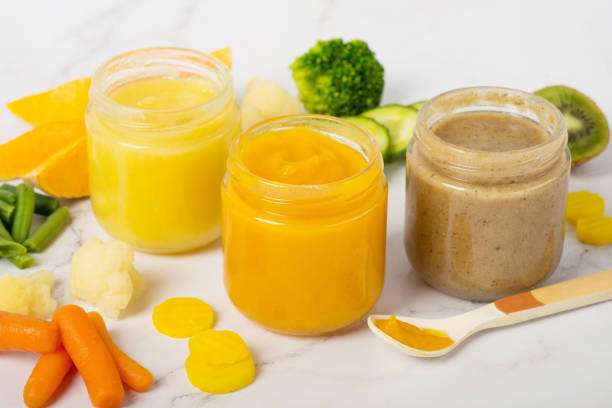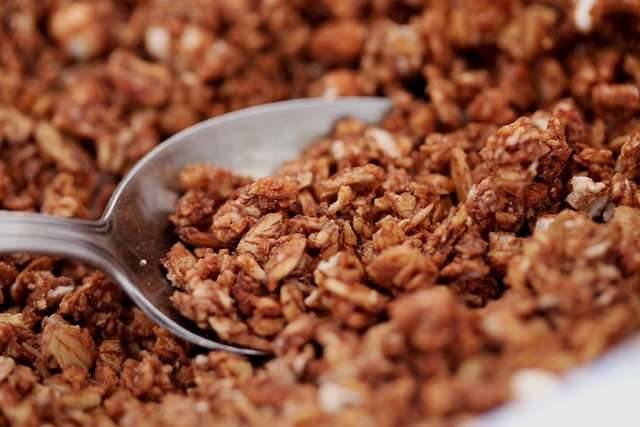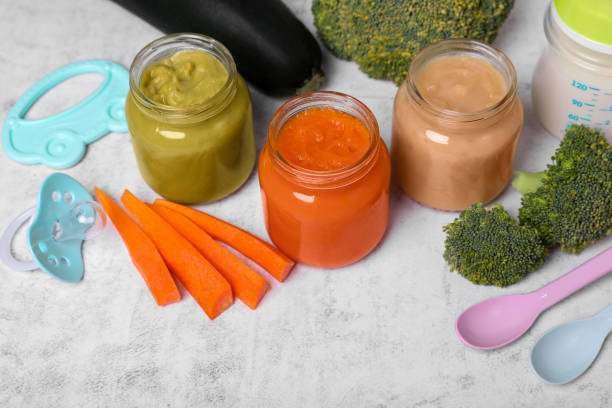
Introduction
Plum Organics is another upscale child food industry brand being endorsed by a number of parents for their natural and quality organic ingredients. The company markets itself as the healthier choice for babies, having promised nothing other than the USDA certified organic fruits, vegetables, and grains. The evolving theories of food safety and nutritional safety concerning the heavy metal contamination issue incite many parents to study up a safety profile for this brand. In this article, we investigate Plum Organics from the ingredients through the safety protocols and the problems, giving you a comprehensive guide as to which might be appropriate for your baby and which might not.
Table of Contents
1. Understanding Plum Organics Baby Food Ingredients
Organics Baby Food Plum Organics is Orbitally organic, non-GMO, without artificial preservatives or additives. Its line of food for infants is mainly filled with fruits, veggies, and grains; in such a way as to provide optimum nutrition compactly and safely packed in shelf-stable convenience. Here is what to be known about the ingredients:
Why Organic?
Plum Organics products receive USDA-certificate for organic matters, meaning that none of the ingredients is from synthetic pesticide, fertilizers, or GMOs. For parents, this is the assurance that the food they provide for the little ones was grown and processed without harmful chemicals, thus prioritizing the child’s health from the start. Organics Baby Food
What Goes into Plum Organics
They keep the ingredients very simple: sweet potatoes, bananas, kale, oats. Simple. That should give parents quiet reassurance as to what they give their babies. There are no crazy additives. It is the food you wouldn’t mind putting in front of your baby if it were homemade. Ideal for little tummies.
Flavors for Baby at Their Developmental Stages
Plum Organics’s product assortment ranges from single-ingredient purees to more sophisticated blends. That variety will be good nutritionally, and again, it exposes babies to a proper palate and to new flavors at their various stages of development.
2. Safety Standards for Plum Organics Production
Food safety is very critical to parents, particularly where infants are concerned. This is why Plum Organics has stringent safety protocols and work habits aimed at meeting industry standards in the sourcing of ingredients and the production of their food so that their product can generally be said to be safe.
How Plum Organics Guarantees Safe Standards in Their Facilities.
Plum Organics works with OEMs in line with FDA and USDA regulations and conducts regular inspections and audits. This includes equipment sterilization, contamination checks, and cleaning conditions to minimize bacteria that naturally breed in blights such as Salmonella or E. coli, which pose considerable risks to infants.

Heavy Metal Testing
In light of various recent concerns regarding heavy metals within baby food products, Organics Baby Food Plum Organics stepped up their efforts to ensure their products remain within the FDA’s specified limits. Although small quantities of these metals are often found in common soil, through root vegetables and grains, Plum Organics has taken proactive measures to have them eliminated further within safe consumption thresholds.
Transparency in Manufacturing Practices
Plum Organics led the charge in making vital facts about their sourcing and testing available to the public. This assurance provides comfort to parents worried about the safety of these babies as far as the brand’s credibility is concerned. Organics Baby Food
3. Some Issues with Plum Organics
Organics Baby Food Many of the ‘need-to-know’ issues surrounding possible contaminants that can arise even in organics have arisen because, in recent times, a number of baby-foods, among their organic line, have shown results across various brands tested positive with trace metals, such as lead, arsenic, cadmium, and mercury.
Heavy Metal in Baby Food
Heavy metals have their origin from either natural or man-made processes in soil provision. Perhaps no organic types can escape this effect as heavy metals may leach from such substrates into the edible parts during the growth of plants. Organics Baby Food Even though Plum Organics employs rigid guidelines and testing to ensure minimization, parents themselves will take on the news from the product or warnings about the product.
Heavy Metal Testing Limitations
Fresh homemade food shall be given to the parents along with store-bought food. Moreover, alternating brands or mixing store-bought with fresh organic produce would protect the baby from exposure while guaranteeing balanced nutrition.
Recalls and Alerts to Parents in Announcements
There may not have been any recalls on Plum Organics in recent times, but that should not stop parents from listening to product alerts, smaller doses of dubious satisfaction with what they feed their children, amongst which this is likely included.
4. Nutrition June Benefits of Babies The Plum Organics
Plum Organics centers on safety and nutritional value for babies. Their purees have vitamins, minerals, and fibers required for healthy growth and development in babies. Organics Baby Food
Vitamins and Minerals
The sweet potato, carrot, and green leafy vegetables-boasting A, C, and E vitamins, contribute to developing and maintaining good vision, Organics Baby Food immunity, and skin health-in addition to the use of whole grains for complex carbohydrates and fiber, provides sustainable energy and digestive health.
Combined with the formation of a balanced diet using several distinct ingredients
Plum Organics allows babies to experience combinations of fruits, vegetables, and whole grains, introducing them to new textures and flavors. This ensures early introduction to a variety of tastes and may minimize the risk of picky eating later.

No Added Sugars or Artificial Ingredients.
While some other brands add sweeteners to their purees, Plum Organics offers a no-add sugar or other preservative line. Organics Baby Food Therefore, they’re committed to letting the ingredients accomplish all that’s needed on the nutritionally balanced front in order to nourish relatively developing bodies with no fillers whatsoever.
5. What To Look Out For In Selecting Baby Food
Not all baby foods are created equal. Consider the following for the consideration of baby food for your little one.
Ingredient Transparency
Choose brands such as Plum Organics which have clearly-there printed every ingredient on their packaging. Avoid products with a long ingredient list; more often than not, they comprise fillers, preservatives, or added sugars.
Certification Labels
These labels do tend to calm parents-those of babies who are organic-minded and worried about food sensitivities or allergies-much more concerning pesticide residue or GMO foods.
View on Products or Brands
Reviews of the product and frequent updates of news on brands may allow you to pick up or note themes of bucket complaints, such as consistency or flavor problems, before purchase.
6. Alternatives to Plum Organics Baby Food
Alternative Products to Plum Organics Baby Food
While Plum Organics is highly regarded, Reputable organic baby food brands are additionally available. This comparison of alternatives can ultimately give parents new options should they be interested in diversifying their babies’ diets. Organics Baby Food
Happy Baby
Happy Baby is equally committed to organic ingredients and clean food practices, developing an extensive line of flavors and texture varieties for all developmental stages.
Earth’s Best
Earth’s Best is US certified organic and produces a wide range of products, including infant formula and snacks, making this option great for parents looking to have variety.
Gerber Organic
Gerber, a more commercial and larger brand, also produces an organic line in strict accordance with USDA guidelines. Generally easy to find, it also is usually cheaper, Organics Baby Food making it a very viable option for cash-strapped families.
7.F.A.Q.s About Plum Organics
Does Plum Organics use preservatives?
Plum Organics baby food does not use preservatives. Their baby food is heat-treated naturally, allowing the product to stay shelf-stable with no chemicals involved.
Is Plum Organics safe for babies with allergies?
Most Plum Organics allergen-friendly labels disclose their allergen contents and in turn encourage parents to read through each product ingredient list should their child have a known allergy.

At what age are Plum Organics suitable?
The age range for Plum Organics begins at 6 months and varies with developmental stages, from simple purees to more complex blends.
Conclusion
Is Plum Organics the Right Choice for Your Baby?
What one ultimately decides to feed into their baby is really an individual choice on the basis of safety, nutritious value, and affordability. Plum Organics is certainly a rare option, bestowing upon artisanal organic, nutrient-dense baby food taking conscious approaches to ingredients and safety practices. While one really ought to be aware that heavy metals are still ongoing challenges in the rest of the industry, Plum Organics did raise its efforts alongside the FDA’s regulations. With information in tow, and diversity into your diet, you may have confidence pushing Plum Organics into the rotation of a healthy, balanced meal for your child.

Pingback: Best Organic Baby Food 2024